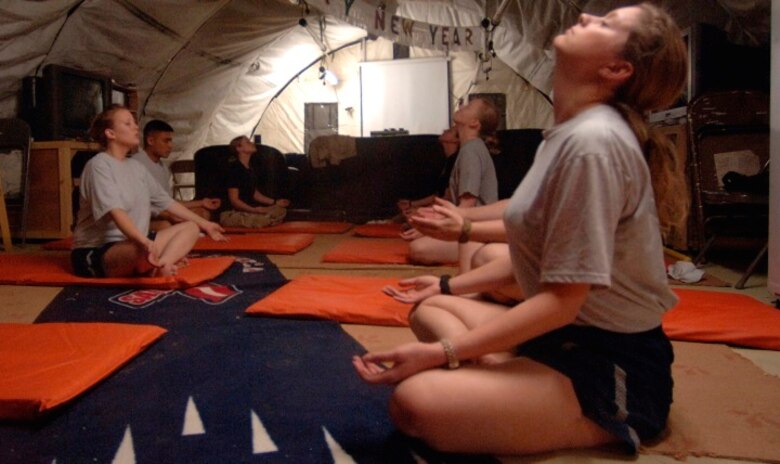
One of the first responses to a stressful event is a noticeable change in the respiration rate. If you are stressed, you'll find you either breathe more rapidly or you go the other way and hold your breath. This is quickly followed by an increased heart rate and tightening of muscles as the stress hormones further kick in.
The good news is that our body has a parasympathetic nervous system that activates the "rest and digest" response to be able to rebalance, following the "fight or flight" response of the sympathetic nervous system.
When the stressful situation is over or diminished in intensity, a person will often find themselves taking deep breaths for relief. These deep breaths are vital to trigger a recovery and relaxation response in the brain. This will enable a normal breathing pattern to establish, which subsequently slows the heart rate, expands the lungs and relaxes the muscles.
The Dangers of Shallow and Rapid Breathing
Sometimes a person's normal breathing pattern does not return promptly after the stressful situation has passed. They continue to take shallow and rapid breaths that cause the brain to maintain a stressed state, instead of entering the recovery phase. In turn, the body's sympathetic nervous system also fails to relax and becomes overworked.
Quite often when this happens the person experiences a panic attack. This will cause the depletion of essential nutrients in the body as the endocrine chemistry is further destabilized.
If these adverse changes in body functions persist for extended periods of time, the person will be subject to an increasingly higher risk of health issues, linked to having an overworked sympathetic nervous system due to constant exposure to stress.
Deep Breathing for Relaxation
Thankfully, activating the rest and digest response of the body is something over which we do have some degree of conscious control. By mindfully performing correct deep breathing we can "tell" our subconscious mind that the stressful situation has passed and more rapidly switch to our recovery or resolution phase. Even if we do still feel threatened or challenged, invoking this response through deep breathing will allow greater clarity of mind, reduce feelings of alarm, and allow reasoned thought rather than panicked reactions.
When we talk about "relaxation response" it does not mean lying on a couch or sleeping on a bed. The relaxation response that is promoted by consciously and actively deep breathing will provide a calm but mentally alert mind, capable of focusing on any given task and not distracted with symptoms of stress. This state of mind enables the body to achieve its resolution phase sooner.
Simple and Effective
Deep breathing technique focuses on taking deep, full breaths. While this may seem to be an overly simple technique, it has been proven to be extremely effective in bringing about feelings of calmness and relaxation.
It is easy to learn and you can practice it almost anywhere. Performing deep breathing techniques on a regular basis has been scientifically proven to positively affect a person's digestive system, immune system, heart and brain function.
Simply mastering this technique will give you the confidence that you can deal with stressful situations as they occur. This trust in your own ability will also lessen the undercurrents of generalized anxiety that keep your stress levels elevated. Whatever additional relaxation techniques you choose to practice, you should first learn the correct way to breathe deeply.
Deep breathing is the cornerstone of relaxation and it can be practiced along with other types of stress-reduction therapies such as music therapy and aromatherapy.
Many experts recommend that everyone set aside at least ten or twenty minutes each day to perform deep breathing exercises.
https://ezinearticles.com/?Deep-Breathing-for-Stress-Relief&id=9709803


No comments:
Post a Comment